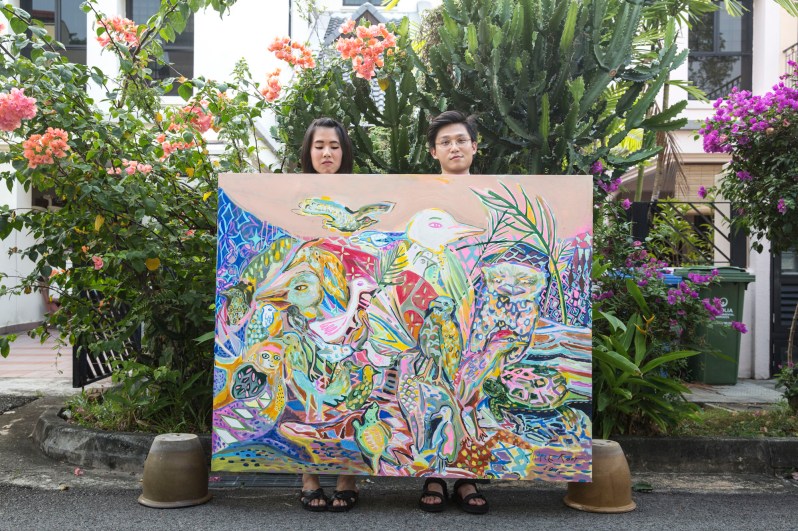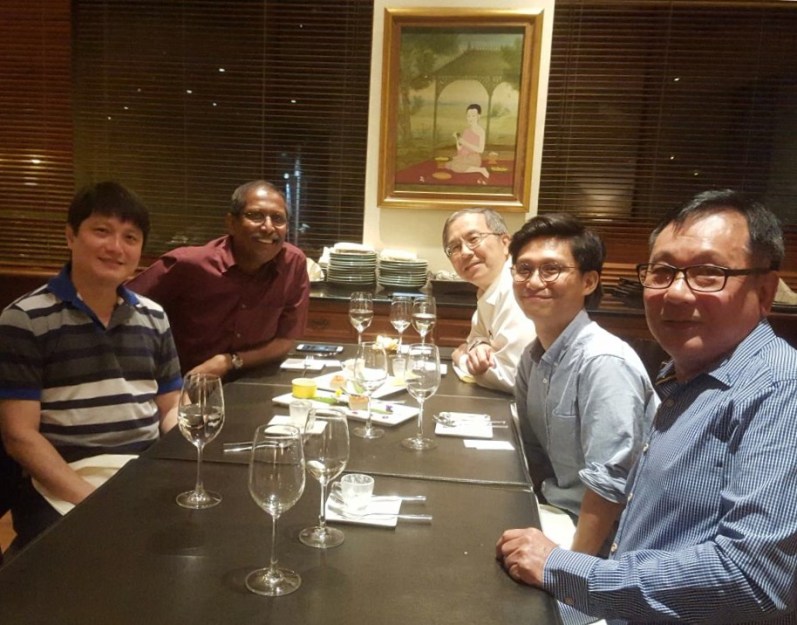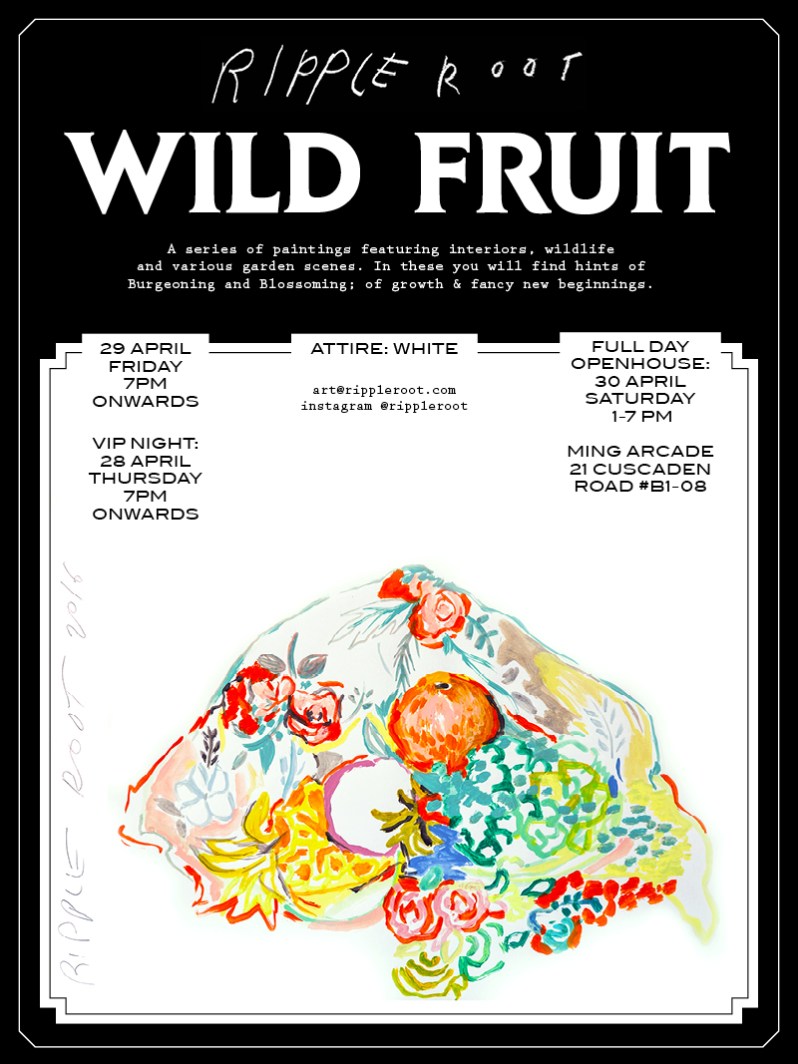
I had no idea what would follow after I posted that story about Liew Meng Kit, the boy from Bentong who joined my school in Kuala Lumpur in Form Four.
For several days afterwards, it felt surreal as schoolmates shared the story, and some returned with another anecdote or memory of the one who had passed on too soon.
In KL, someone told Meng Kit’s wife Seok Hoon about my story. It turned out her son Arnold has been living in Singapore too. She told her brother, Chee Boon, who lives and works in Singapore, and he contacted some of us to set up dinner with Arnold.
So last Tuesday my classmates Chan Kwan Yew and Tan Hun Hoe and I were at a Thai restaurant to meet Arnold and Chee Boon, a jolly man and an old boy of St John’s Institution like us, though many years our junior.
Kwan Yew was the only one who had met Seok Hoon, after Meng Kit was admitted to hospital in Singapore in 1988. He produced a photo of his daughter playing with Arnold in 1989, the last time he saw Meng Kit.
Poor Arnold, stuck with meeting these these uncles who once knew his father, who died in 1994. Arnold was eight years old at the time, and his sisters were six and twelve.
There were a few awkward silences through dinner, but with Hun Hoe the urologist present, there was never any fear we would run out of conversation topics. As the night progressed, there were more connections to discover.

Chee Boon and Arnold attend the same Methodist church as my longtime doctor and life-saver Dr Ho King Hee. All these years that I’ve been seeing this doctor, he’s been seeing my friend’s son and brother-in-law!
Arnold is a graphic design entrepreneur and an artist who does an unusual form of art – collaborative painting. He and his friend Estella Ng work on each painting together, passing the work back and forth until they’re satisfied with it, and they sign off as Ripple Root . She’s Ripple, he’s Root.
He tells me they sold one of their paintings last year to my former boss at the newspaper, Patrick Daniel. Another connection. What a shrinking world.
When Arnold tells me that in their former job he and Estella did work for the spanking new National Gallery Singapore, I tell him my daughter Nicola works in its curatorial department.
“Oh my gosh,” he says looking her up instantly on Facebook, “I’ve seen her so many times!” They’ve sat across from each other to argue about merchandise for the gallery shop, never knowing that their fathers were classmates in 1969.
Dinner ended, we promised to meet again. Arnold says he and Estella have an art exhibition coming up and says he will email me the details.
Three days later we met again, when my wife and I dropped in at Ripple Root’s modest new studio space in the basement of Ming Arcade on Cuscaden Road. It’s not the real exhibition yet, but they’ve hung up a bunch of paintings that reflect how they look at nature and wildlife; they’re vibrant and colourful, child-like and fun.
I wonder how two artists can work on the same painting and not get in each other’s way. What if one ruins what the other started? How do they know when they’re finished? Are they both always pleased with the finished work? What happens if they un-friend one another some day?
Arnold tells me: “I think what’s fun about doing collaborative work is we have to just let our guard down and let the other person tinker/tamper with/make best of what we started. Complete Trust! We do come from different disciplines, she’s more Abstract Painting and I’m figurative, so that back-and-forth actually helps.
“We do argue, but nothing major, helps the work.”

People have often told Arnold he inherited his creative streak from his father. There’s a story that Meng Kit once made a leather handbag for his wife. What a startling thought, he must have been good.
I get another surprise on my phone. From Melbourne, Meng Kit’s youngest child Alicia, Whatsapps me to say hello and we start exchanging messages. She hadn’t heard the handbag story, but tells me her father made furniture too.
She said it was nice reading my story and seeing how Meng Kit’s friends remembered him from his schooldays. She was so young when he died, she does not remember a lot of him. Now we are Facebook friends.
Arnold had told us over dinner that after his father passed away, his mother returned to work, taking a job near their Kuala Lumpur home so she could be back for lunch with the children every day.
Meeting him was a first. I’ve never gone out to dinner with any of my classmates’ children. I can imagine my children baulking if I suggested going out to meet some of my schoolmates from way back when.
Arnold was mostly quiet and listening to us talk, cringing as Hun Hoe finally began regaling us with horror stories from a urologist’s clinic.
Our meal was ending when he asked me: “So what made you write that story about my father?”
I wasn’t planning to stop in Bentong that day, I say, but my short visit brought back memories and sparked several more from schoolmates who remembered Meng Kit vividly after all these years.
Most of us lost touch after leaving St John’s, as careers and families took priority. Now, after all these decades, the catching up has begun and our conversations drift inevitably to asking who’s in touch with whom, who’s settled where, and whatever happened to Melvin Lee Hong Teik who seems to have vanished from the face of the earth.
When Kwan Yew produces an old class photograph on his iPad and we all peer at it, there are many boys who look familiar, several others I scarcely remember, whose names escape me altogether.
But Meng Kit is always someone I will spot right away, I tell Arnold. I can still hear his unique guffaw, often laughing at his own joke. He made an impression.
If he walked in the door, I would want to be his friend again.


What a wonderful story! And Arnold does look a lot like the old Meng Kit! Wonder if Alicia would want to establish contact with me since she’s in Melb? Let her know and see if she’s interested.
LikeLike
Hi Kim, okay I’ll let Alicia know the SJI uncles are everywhere! What a scary thought, haha.
LikeLike
I was just thinking- Arnold’s & Alicia’s case is similar to your own in which you have all lost your Dads at an early age. Since they would have had very little recollection of their Dad (as you too), they probably would appreciate( I would think!) meeting and talking with people who have known their fathers in an earlier age. Wouldn’t you be in the same situation, meeting people who have known your Dad when he was alive?
LikeLike